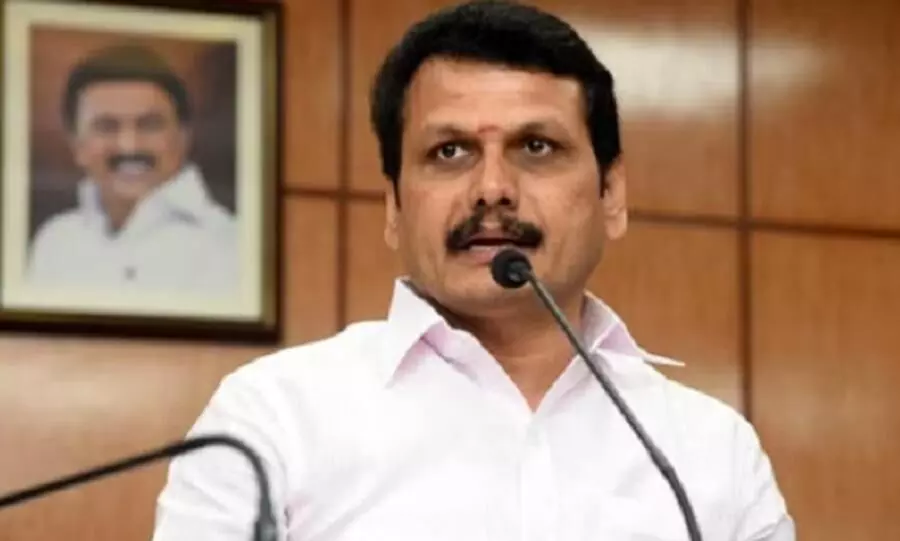
Madras HC delivers split verdict in habeas corpus plea seeking Senthil Balaji’s release in ED case
text_fieldsChennai: The Madras High Court on Tuesday delivered a split verdict on the maintainability of the habeas corpus plea filed by the wife of Tamil Nadu minister Senthil Balaji, who was arrested last month for his alleged involvement in a money laundering case under investigation by the ED.
The case will now be heard by a larger bench, with the Chief Justice set to appoint a third judge to hear the case.
The split verdict was delivered by a two-judge bench comprising Justices Nisha Banu and D Bharatha Chakravarthy.
Justice Banu said the plea is maintainable and that the Enforcement Directorate (ED) does not have the authority to seek police custody under the Prevention of Money Laundering Act.
Justice Banu also dismissed the ED’s application to exclude the period of Balaji’s hospital treatment from his ED custody period.
However, Justice Chakravarthy questioned whether a habeas corpus plea is maintainable after a remand order.
Observing that there was no evidence to suggest that Balaji’s remand was illegal, his order deemed the plea dismissible. The judge also added that the period of Balaji’s hospital stay should be excluded from his ED custody period.
Balaji, who had complained of chest pain and was hospitalised soon after his arrest on June 14, underwent a heart surgery a week later.
Megala, Balaji’s wife, had filed the habeas corpus petition after his arrest, alleging violations of fundamental and statutory rights. She contended that the remand order from the Principal Session Court, Chennai, was mechanically passed, hence, making the habeas corpus plea maintainable.
She alleged violations of procedures and laws in the arrest, remand, and subsequent detention of the minister by the ED.
The arrest was carried out by the ED with the Rapid Action Force’s assistance. Megala complained that Balaji’s friends and relatives, who were present with him, were driven out of the house and that “nobody knew what was happening inside the house from June 13, 2023, morning 7.45 am to June 14, 2 am.”
Megala’s petition also said the arrest had violated sections 41, 41A, 50, and 50A of the Code of Criminal Procedure 1973, section 19 of the Prevention of Money Laundering Act, and Articles 21 and 22(1) of the Constitution.
The ED argued that there was a clear distinction between the power to arrest under PMLA and CrPC. A pre-arrest notice under section 41 of CrPC was only required when the ED did not want to arrest a person, the agency contended, adding that the law demanded the grounds for arrest to be provided “as soon as possible”.
 Also Read:Tamil Nadu governor reverses decision to dismiss jailed minister Senthil Balaji
Also Read:Tamil Nadu governor reverses decision to dismiss jailed minister Senthil Balaji























